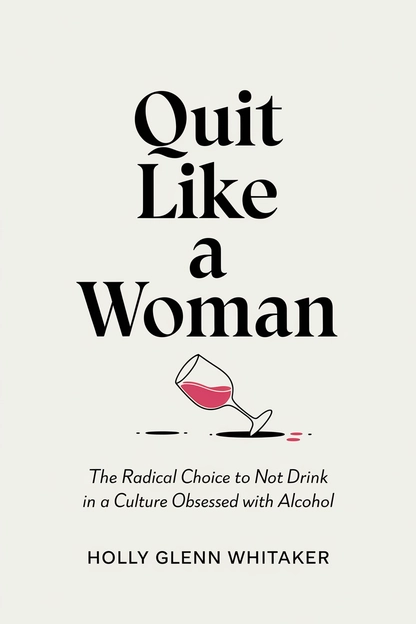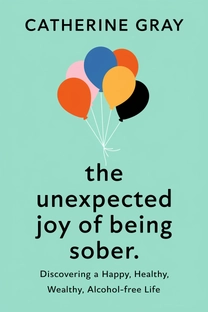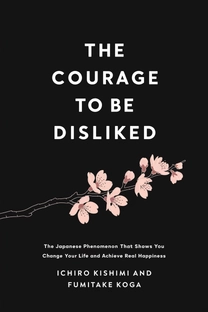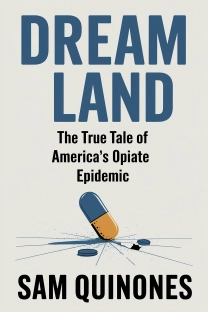
Quit Like a Woman
The Radical Choice to Not Drink in a Culture Obsessed with Alcohol
by Holly Glenn Whitaker
Brief overview
This book reveals how our society’s constant focus on drinking can undermine our well-being and sense of self. It blends personal experiences, social commentary, and practical steps to foster a new mindset about quitting alcohol. Readers can expect to see how rethinking their choices leads to liberation, personal agency, and more meaningful connections.
A Culture Obsessed
Many people assume alcohol is a natural part of social events, stress management, and celebrations. Advertisements, media, and even morning talk shows normalize drinking at all hours. This has created a culture where questioning alcohol’s role often feels taboo. For those who begin to wonder if life is better without it, the usual answer from society is, “Why stop if you’re not hitting rock bottom?”
Yet the grip of alcohol extends beyond those who meet clinical definitions of addiction. It seeps into motherhood jokes, wellness trends, and corporate gatherings. This normalization can make it tough to identify when a habit has quietly become harmful. The first step is recognizing that our culture’s fixation on drinking runs deeper than we often admit.
By looking beneath the surface, we see that social media, meme culture, and influencer marketing promote the idea that wine is a mom’s best friend or that vodka is a feminine power statement. In reality, these messages often obscure the significant harm alcohol can inflict. The aim here is to start untangling those assumptions.
Seeing alcohol for what it truly is, not just a harmless beverage but a potentially addictive substance, can open the door to real change. Accepting that the world at large encourages drinking—rather than cautioning against it—helps illuminate the need to reform your own relationship with alcohol, whether it’s casual or heavy.
Breaking the Illusion of Normalcy
One of the hardest parts of reevaluating drinking is the lingering question: “What if my behavior is normal?” Because our systems value alcohol as a wholesome, everyday treat, we tend to believe that only a small, unlucky percentage of people have a “real problem.” In this view, if you don’t match the stereotype of someone in crisis, there’s nothing to fix.
But it turns out that alcohol is, by nature, addictive and can harm anyone, regardless of background. The difference is found in how each body responds to the substance and the coping structures a person has available. The myth that only a certain group is in trouble lets everyone else off the hook, while obscuring subtler forms of harm.
This binary—“normal drinkers” vs. “alcoholics”—keeps people stuck. Many who drink heavily but haven’t lost a job or crashed a car might think they’re fine. However, metric after metric suggests negative impacts on mental health, hormone balance, and self-esteem can sneak up on people who wouldn’t classify themselves as addicted. It’s an illusion that normalcy equals safety.
Acknowledging that you don’t have to be a textbook “alcoholic” in order to decide you have a problem is a breakthrough. Rather than rely on a label, you can notice how you feel, behave, and respond to drink. This invites you to decide personally when enough is enough, without waiting for a rock-bottom scenario.
What is Quit Like a Woman about?
"Quit Like a Woman: The Radical Choice to Not Drink in a Culture Obsessed with Alcohol" by Holly Glenn Whitaker challenges the pervasive culture of drinking that often undermines personal well-being and autonomy. Through an engaging blend of personal narrative, societal critique, and actionable strategies, Whitaker unfolds an empowering alternative to conventional sobriety frameworks. Drawing on her experiences, she debunks the myth that alcohol consumption is synonymous with celebration and relaxation, proposing instead a liberating journey toward self-discovery and fulfillment.
At its core, this book highlights the significant impact of rethinking one's relationship with alcohol. It exposes how deeply entrenched drinking culture can stifle individual growth and self-perception. Through a combined approach of self-compassion and community support, Whitaker presents a compelling case for a life beyond alcohol—a life where personal agency and meaningful connections thrive unencumbered by societal norms. Her feminist-centric insight reinvigorates the pathway to sobriety, creating a newfound sense of power and possibility.
Review of Quit Like a Woman
"Quit Like a Woman" stands out for its unapologetically feminist perspective on sobriety, delivering a refreshing discourse that deviates from male-centered recovery models. Whitaker's key strength lies in her ability to articulate the cultural pressures that often push women towards alcohol, while offering practical strategies to reclaim personal agency. Drawing from her life, she dismantles the binary of "alcoholics" versus "normal drinkers," revealing a more nuanced understanding of dependency that resonates with many.
The book's practical applications are robust, prioritizing tools such as mindfulness and self-care to replace harmful habits. Whitaker's engaging writing style makes the complex interplay between societal norms and personal choice accessible to readers from all backgrounds, encouraging them to view sobriety as an empowering lifestyle change rather than a restrictive endeavor. Her narrative is imbued with actionable takeaways—such as crafting new daily rituals—that foster resilience and authentic living.
While "Quit Like a Woman" is written with particular relevance to women grappling with alcohol dependency, its inclusive approach broadens its appeal to anyone questioning their drinking habits. Whitaker concludes with an empowering call to action, recommending her book to those ready to explore a transformative path to sobriety. Her conversational yet professional tone makes the book approachable, affirming, and deeply inspiring.
Who should read Quit Like a Woman?
- **Women exploring sobriety:** Those seeking to liberate themselves from societal drinking norms will find this book's feminist approach transformative.
- **Mindfulness practitioners:** Readers interested in integrating mindful practices into their lifestyle to support sobriety will benefit from Whitaker’s insights.
- **Self-help enthusiasts:** Individuals invested in personal growth and empowerment will discover valuable, actionable strategies for positive change.
- **Counselors and therapists:** Professionals in mental health fields can draw on the book's contemporary perspective to support clients grappling with alcohol dependency.
- **Support group leaders:** Facilitators of sobriety groups will find Whitaker’s unique approach to recovery a valuable addition to their resources.
About the author
Book summaries like Quit Like a Woman
Why readers love Mindleap
10-Minute Book Insights
Get the core ideas from the world's best books in just 10 minutes of reading or listening.
Curated For You
Discover your next favorite book with personalized recommendations based on your interests.
AI Book ExpertNew
Chat with our AI to help find the best book for you and your goals.
Reviews of MindLeap
Love how I can get the key ideas from books in just 15 minutes! Perfect for my busy schedule and helps me decide which books to read in full.
Alex R.
The summaries are incredibly well-written and the audio feature is perfect for my commute. Such a time-saver!
Jessica M.
Great app for personal growth. The insights are clear and actionable, and I love how they capture the essence of each book.
Chris P.
The app is beautifully designed and the summaries are top-notch. Definitely worth every penny!
Sarah K.




